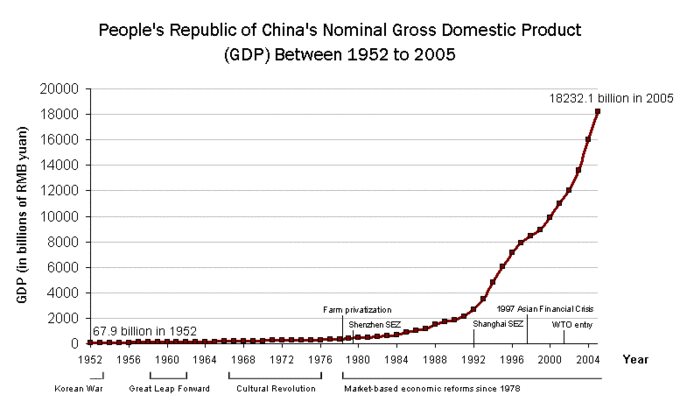Democratic Capitalism and the US
The United States is often seen as having a democratic capitalist political-economic system. Democratic capitalism, also known as capitalist democracy, is a political, economic, and social system and ideology based on a tripartite arrangement of a market-based economy that is based predominantly on a democratic polity. The three pillars include economic incentives through free markets, fiscal responsibility, and a liberal moral-cultural system, which encourages pluralism.
In the United States, both the Democratic and Republican Parties subscribe to this (little "d" and "r") democratic-republican philosophy. Most liberals and conservatives generally support some form of democratic capitalism in their economic practices. The ideology of "democratic capitalism" has been in existence since medieval times. It is based firmly on the principles of liberalism, which include liberty and equality. Some of its earliest promoters include many of the American founding fathers and subsequent Jeffersonians.
This economic system supports a capitalist, free-market economy subject to control by a democratic political system that is supported by the majority. It stands in contrast to authoritarian capitalism by limiting the influence of special interest groups, including corporate lobbyists, on politics. Some argue that the United States has become more authoritarian in recent decades.
The Relationship between Democracy and Capitalism
The relationship between democracy and capitalism is a contentious area in theory and among popular political movements. The extension of universal adult male suffrage in 19th century Britain occurred alongside the development of industrial capitalism. Since democracy became widespread at the same time as capitalism, many theorists have been led to posit a causal relationship between them. In the 20th century, however, according to some authors, capitalism also accompanied a variety of political formations quite distinct from liberal democracies, including fascist regimes, absolute monarchies, and single-party states.
While some argue that capitalist development leads to the emergence of democracy, others dispute this claim. Some commentators argue that, although economic growth under capitalism has led to democratization in the past, it may not do so in the future. For example, authoritarian regimes have been able to manage economic growth without making concessions to greater political freedom. States that have highly capitalistic economic systems have thrived under authoritarian or oppressive political systems. Examples include:
- Singapore, which maintains a highly open market economy and attracts lots of foreign investment, does not protect civil liberties such as freedom of speech and expression.
- The private (capitalist) sector in the People's Republic of China has grown exponentially and thrived since its inception, despite having an authoritarian government.
- Augusto Pinochet's rule in Chile led to economic growth by using authoritarian means to create a safe environment for investment and capitalism.

Peoples' Republic of China's Nominal Gross Domestic Product (GDP) Between 1952 to 2005
Scatter graph of the People's Republic of China's GDP between years 1952 to 2005, based on publicly available nominal GDP data published by the People's Republic of China and compiled by Hitotsubashi University (Japan) and confirmed by economic indicator statistics from the World Bank.